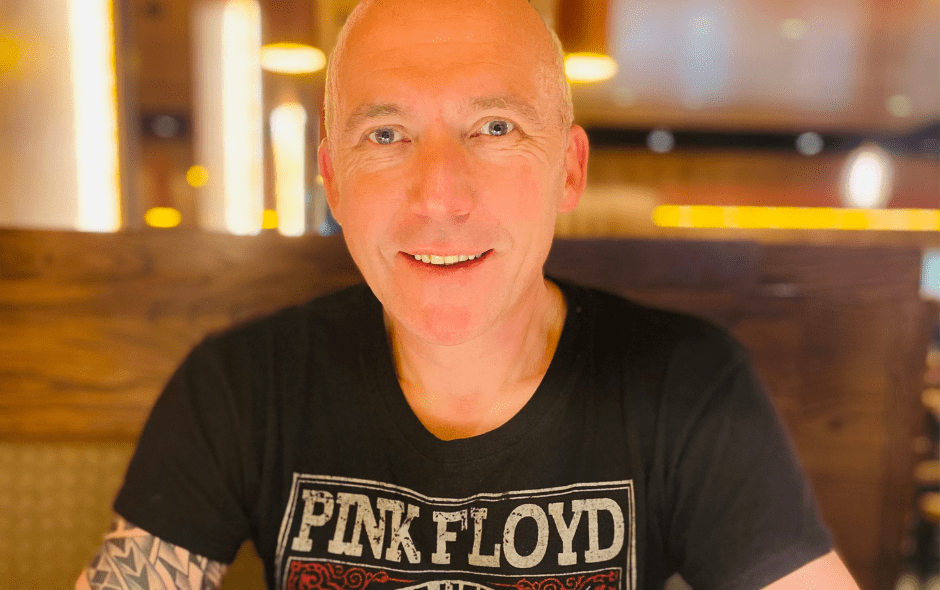Billy was diagnosed with epilepsy four years ago. He shares the challenges he has faced, what his main seizure triggers are and how he manages them and what he would say to someone who has been recently diagnosed.
How did you feel when you were first diagnosed with epilepsy?
I had always viewed epilepsy as the condition associated with someone having a “fit” and so I didn’t understand how it was possible that I could have had it.
I further didn’t understand how it was possible to have developed epilepsy as an adult.
What type of seizures do you have? How does it affect you?
Focal impaired awareness seizures. I smack my lips, rub my fingers together (I call this my “disco hands”), and swallowing repeatedly. I often drool and occasionally lose my balance.
I am completely unaware of the event afterwards and I only know about the event if I’m informed about it.
My memory is often poor afterwards for a period, generally only for a short period, only extremely occasionally for several hours, which can be frustrating.
This is particularly distressing for my fiancée, who often must repeat herself during conversations.
What challenges have you faced since being diagnosed with epilepsy?
My previous employment involved travelling extensively. It became extremely difficult to meet the requirements of my position given this (owing to my driving licence being revoked).
I ended up having to leave this employment and find alternative work that didn’t involve travelling.
We always say that epilepsy is more than seizures. Do you feel this has been your experience?
I’ve always felt that, since it can’t always be controlled, it is more than the seizure itself.
A sensation I occasionally feel, dependent upon the circumstances or a specific situation, is one that I am hopeful that I don’t have a seizure.
Do you feel that epilepsy has stopped you from doing what you want to do?
My fiancée and I loved to go rock climbing. This proved dangerous one time following my diagnosis. She was on the wall face when I had a seizure.
I couldn’t support her since I did not have a grip on the rope, which ensured she would be safe if she were to fall.
She had to remain tightly gripped on the wall, whilst at height, and called for assistance. Thankfully, this happened in a controlled environment. This could have been disastrous.
Not being able to drive can be a problem. In general, I don’t find epilepsy prohibitive, since you have to live with it and there are so many other difficulties in life which are significantly more extensive.
What are your main seizure triggers and how to manage them?
My seizures seem to be unprovoked, however, it could be an accumulation of tiredness and occasional stress. I generally avoid alcohol.
I drink a lot of coffee, however, I’m unsure if this is a trigger or not, and I selfishly feel that I generally live well and so why shouldn’t I?
Perhaps a little more maturity should be applied and ascertain if this does contribute!
I try to ensure that I am well-rested and get to sleep at regimented times. I try not to get too stressed or worried. This is helped through the support of my fiancée.
Do you feel there is a stigma surrounding epilepsy?
I don’t feel that the same level of stigma is evident, at present, when compared with previous decades.
As a youngster (during the ’70s) it was perceived that something was “wrong” with the individual, much like a serious disability.
There is a much greater awareness of epilepsy. Many First Aid courses now provide some instruction when providing medical attention of colleagues who may have epilepsy.
What would you say to others who have been recently diagnosed with epilepsy?
Don’t be afraid to talk about it, or let your friends and family know about your diagnosis. Their support could assist you should you have a seizure, and permit them to react, and help if possible.
They can also assist through potentially advising you if you undertook a specific activity, or had been experiencing something prior to the seizure, which you may not have been aware of as a potential trigger.
Don’t be afraid to let your colleagues know that there may be situations which arise due to you having a seizure, and what they can do to help.
Is there anything else you would like to add?
The support of my fiancée has been incredible. The medical support is excellent, and it’s great that resources are available, through groups dedicated to epilepsy, in order to share experiences.
If you would like to share your experiences of living with epilepsy, please email David Coates our Communications Officer at dcoates@epilepsyscotland.org.uk or call 0141 427 4911.




